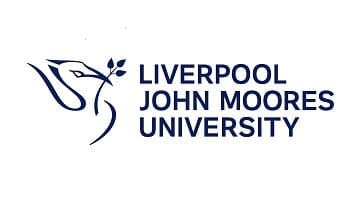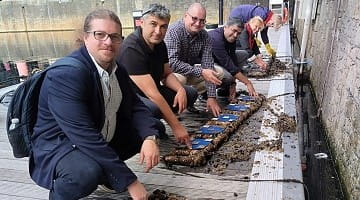About this course
Explore contemporary wildlife conservation and technology for conservation on this MSc at LJMU. Learn from world-leading experts on this hands-on course that utilises technology for solving global conservation challenges.
- Learn from world-leading experts in the field of wildlife conservation and conservation technology
- Take part in a week-long residential packed full of practical skills training, such as mapping, biodiversity monitoring techniques and applications of innovative digital technologies to surveying in the wild (the cost of the trip is included in your course fees*)
- Benefit from world-class teaching and laboratory facilities (including drone technology, genetics and GIS facilities)
- Gain specialist skills such as complex data handling and analysis
- Develop academic skills such as grant writing, forming collaborations and effective communications
Wildlife conservation is an exciting field of study that has important implications for the way in which we manage our world. With an increasing global population, healthy and functioning ecosystems are vital for human health, wellbeing and success. We need wildlife for their ecosystem services, and conserving wildlife is becoming increasingly complex, with greater need to utilise digital technologies such as drones, camera traps and acoustic sensors. This Masters will provide you with advanced skills in using conservation technology for wildlife conservation monitoring and research. Additionally, you will gain specialist skills such as complex data handling and analysis; and academic skills such as grant writing, forming collaborations and effective communications.
You will take part in a week-long residential packed full of practical skills training, such as mapping, biodiversity monitoring techniques and applications of innovative digital technologies to surveying in the wild. Not only will you develop practical ecology field skills such as species identification and surveillance, you will also have access to cutting-edge technologies, such as drones, camera traps and acoustic sensors, to perform fundamental and applied research. Professional researchers and local experts will be on hand to guide your learning.
A postgraduate degree is highly recommended when considering a career in Wildlife Conservation, particularly as governments around the world are setting ambitious targets for tackling global conservation challenges like climate change and biodiversity loss. As a result, there is demand for graduates that can demonstrate the necessary theoretical background, alongside practical skills for conservation practice. LJMU boasts world-class teaching and laboratory facilities (including state-of-the-art drone technology and GIS facilities), which you will be able to use during the course. You will have 24 hour computer access and access to specialist software. In addition, the LJMU library has an extensive collection of online and hard copy books, journals and internet resources related to the course.
Your lectures and seminars will be delivered by world experts in the field of wildlife conservation and conservation technology. The quality of research and teaching during the course mean that you will graduate with cutting-edge knowledge and access to a host of international professional networks. The Research Centre in Evolutionary Anthropology and Palaeoecology (RCEAP) conducts research at the frontiers of biological anthropology, catalysed by discovery-oriented field research. The Drone Research Group comprises experts in the design, development and use of drone systems for a wide array of scientific applications. You will have opportunities to network with external collaborators and stakeholders in the conservation sector.
Course modules
Discover the building blocks of your programme
The academic staff leading this course conduct research in this area. Your programme leaders uphold a wide range of international and national connections that can provide exciting opportunities for you during and after the course. You will have the opportunity to conduct fieldwork at international sites and make career-long connections.
We will also encourage you to become members of the learned societies, such as Society of Wildlife Conservation.
Further guidance on modules
Modules are designated core or optional in accordance with professional body requirements, as applicable, and LJMU’s Academic Framework Regulations. Whilst you are required to study core modules, optional modules provide you with an element of choice. Their availability may vary and will be subject to meeting minimum student numbers.
Where changes to modules are necessary these will be communicated as appropriate.
Core modules
Your Learning Experience
An insight into teaching on your course
Study hours
You will have a number of hours per module per week of taught material and/or laboratory work. Teaching will take place throughout the week and can vary across semesters, dependent on which modules are running. Private study will cover both time spent studying at home or in the library, analysing data and completing directed tasks and coursework. Taught sessions will provide an orientation to the topic and opportunity for classroom discussion and debate. You will be expected to read widely using primary sources of reference material.
Teaching methods
There is a strong emphasis on practice-based learning through lectures, seminars, workshops, student-led discussion groups and fieldwork. Self-guided study is also a key requirement at MSc level. The week-long residential includes practical skills training, such as mapping, biodiversity monitoring techniques and applications of innovative digital technologies to surveying in the wild.
Applied learning
During your studies you will develop a hypotheses-driven study based on the latest wildlife conservation literature. Converting your idea for a study into a practical plan will involve: learning how to write a grant proposal (from funding experts), creating a budget, and thinking through the logistical issues of conducting research in challenging environments.
You will learn how to operate drone technology for wildlife conservation research and how to analyse the data obtained using these systems; providing you with a unique skillset.
How learning is monitored on your programme
To cater for the wide-ranging content of our courses and the varied learning preferences of our students, we offer a range of assessment methods on each programme.
Assessment methods on this course include: written, oral and practical assignments such as project reports and seminar presentations. Practical skills will be assessed via the dissertation and oral presentations.
Where you will study
This programme is based in the City Campus. Here you will find world-class teaching and laboratory facilities (including state-of-the-art drone, genetics and GIS facilities) which you will be able to use during the course. You will also have 24 hour computer access and access to specialist software. In addition, the LJMU library has an extensive collection of online and hard copy book, journal and internet resources related to studying Wildlife Conservation.
Career paths
Further your career prospects
LJMU has an excellent employability record with 96% (HESA 2018) of our postgraduates in work or further study six months after graduation. Our applied learning techniques and strong industry connections ensure our students are fully prepared for the workplace on graduation and understand how to apply their knowledge in a real world context.
As a graduate from the programme you will be able to pursue a career working for national or international wildlife conservation NGOs, national or international environmental consultancy companies, and environmental government bodies. The course is also excellent preparation for conservation research and academia. Staff involved in the course have a wide range of international and national connections that can provide exciting opportunities for students during and after the programme.
Tuition fees and funding
- Full-time per year:
- £11,915
Fees
The fees quoted above cover registration, tuition, supervision, assessment and examinations as well as library membership and student IT support with access to printed, multimedia and digital resources including programme-appropriate software and on campus wifi.
Financial Support
There are many ways to fund postgraduate study for home and international students. From loans to International Scholarships and subject-specific funding, you’ll find all of the information you need on our specialist postgraduate funding pages. The University offers a range of financial support for students. You'll find all the information you need on our specialist financial support pages including details of the Student Support Fund and other activities to support with the cost of living.
Additional Costs
In addition to fees, students should also keep in mind the cost of:
- Accommodation
- Travel costs and field trips unless paid for by LJMU
- Stationery, IT equipment, professional body membership and graduation gown hire
* Practical and field activities underpin all programmes in the school. PPE and access to specialist facilities are provided for all necessary practical work. Travel, accommodation and site costs are included in the course fees. You will be required to meet other potential costs, such as field clothing, visas and immunisations if required.
Entry requirements
You will need:
How to apply
Securing your place at LJMU
To apply for this programme, you are required to complete an LJMU online application form. You will need to provide details of previous qualifications and a personal statement outlining why you wish to study this programme.
To study this programme you must be motivated towards and have a passion for conservation (as evidenced by engagements in local or international conservation activities, nature clubs or campaigns, for example).
You must also show that you are independent, creative, can think outside the box, are practical and interested in technology - such as using cameras, recorders and drone technology.
Your university life
From accommodation and academic support to clubs and societies. Find out what LJMU has to offer.
Related Links
Talk to our students
Connect with a current LJMU student for advice and guidance on university life, courses and more.
See what our students are saying
At LJMU we want you to know you’re making the right choice by studying with us. You can see what our students are saying about their experience with us through their reviews on the following websites:
Related Links
News and views
Browse through the latest news and stories from the university
The University reserves the right to withdraw or make alterations to a course and facilities if necessary; this may be because such changes are deemed to be beneficial to students, are minor in nature and unlikely to impact negatively upon students or become necessary due to circumstances beyond the control of the University. Where this does happen, the University operates a policy of consultation, advice and support to all enrolled students affected by the proposed change to their course or module.




























